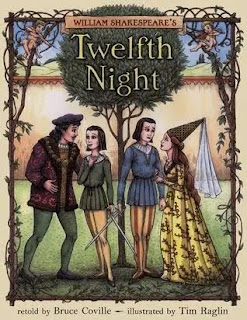Character and Function of Feste
We, who hate to be made fools of, flock to Twelfth Night to get thepleasure of seeing imaginary people making fools of one another.-Stevie Davis
‘Satire’, as Jonathan Swift said, ‘is a sort of glass, wherein beholders do generally discover everybody’s face but their own.’ Twelfth Night, of course, is not strictly a satire, but it does hold up a mirror in which, however, we are not expected or required to recognize our specific selves. The Fool, so central to the play’s art, conventionally carried an unflattering glass, which he would whip out and stick in front of people’s faces when they were least expecting it, in the wholesome cause of conferring self-knowledge on the victim. In excess of providing an inexhaustible fund of mirth. Feste’s Witticism functions in this way.
Never caustic and mordant, in fact, Feste has an illimitable stock of mirth, wit, and humor. Voila rightly sums up:
This fellow’s wise enough to play the fool
With all his wisdom, Feste is the jester, the comic soul of the play. He has forged a link between the world of culture, refinement, and politeness. the world of Count Orsino and Olivia, and the coarse underworld of fun, wit, frivolity, and caprice. No respecter of persons, he pokes fun at the follies and foibles of the denizens of both the worlds. He unhesitatingly chides Olivia for her melancholy; with the same gusto he rebukes Orsino for his mawkish sentimentality. He criticizes Sir Andrew for his sickening nonsense. But nobody minds being children. It is he who makes the play sparkle. True, Feste has sized up all the characters in the play.
Feste is a versatile genius. As a professional entertainer, he does everything to please his audience. He caters to their requirements. The love-sick Duke is sustained by melancholy, and, therefore, Feste sings melancholy songs to feed his fancy. He sings ‘come away, Death’, but he is not, in any way, emotionally involved. Not for nothing, therefore, J.B. Priestly dubs him as ‘detached’, ‘observant’, and ‘critical.
Music is Feste’s extraordinary gift. We have,’ says A.C. Bradley, another reason to like Feste. His voice is as melodious as the “sweet content” of his soul.’ In this, Feste stands alone among Shakespeare’s Fools.
True, Feste is an irreplaceable figure. He is responsible for part of the comic tone of the play due to his puns and jokes. Within the play, he plays his part as a clown entertaining other characters, but outside the play, he has a different role, which is to entertain the audience of the play and comment on the action for the public to follow every detail.

#charater_and_role_of_feste
